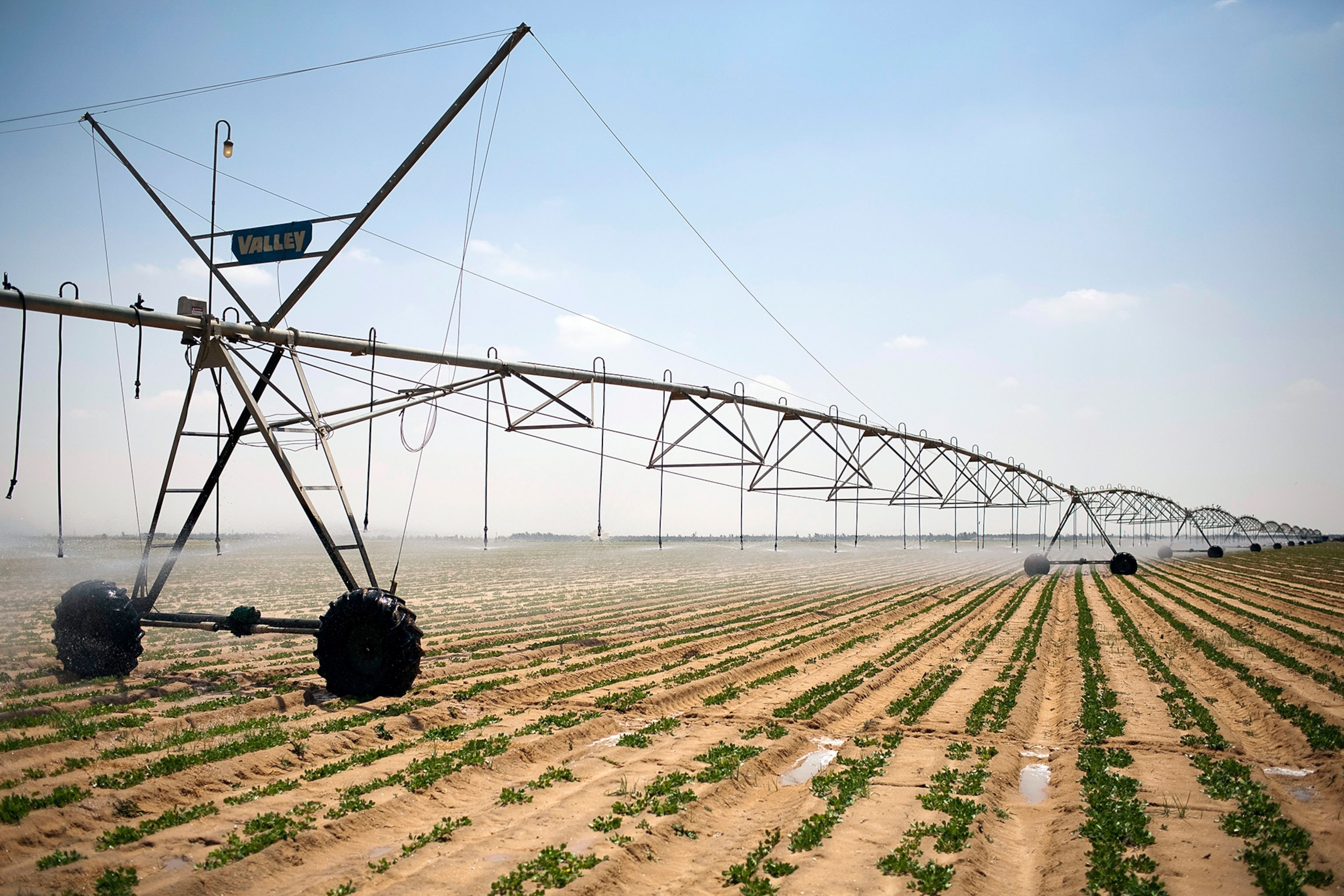
Billions face food, water shortages over next 30 years as nature fails
A new model shows which areas of Earth will likely be hit the hardest by the changes caused by human activity, also revealing possible solutions.
As many as five billion people, particularly in Africa and South Asia, are likely to face shortages of food and clean water in the coming decades as nature declines. Hundreds of millions more could be vulnerable to increased risks of severe coastal storms, according to the first-ever model examining how nature and humans can survive together.
“I hope no one is shocked that billions of people could be impacted by 2050,” says Rebecca Chaplin-Kramer a landscape ecologist at Stanford University. “We know we are dependent on nature for many things,” says Chaplin-Kramer, lead author of the paper “Global Modeling Of Nature’s Contributions To People” published in Science.
That nature is in sharp decline was made clear in the first-ever global assessment of biodiversity released earlier this year. Human activity has resulted in the severe alteration of more than 75 percent of Earth’s land areas and 66 percent of the oceans, putting a million species at risk of extinction, according to the Global Assessment Report on Biodiversity and Ecosystem Services.
The human-nature relationship
Human well-being is dependent upon nature’s contributions, also known as ecosystem services. The new model looked at three of nature’s contributions or services: providing clean water; coastal protection, or crop pollination. The model reveals that the future declines in those services will hit people in Africa and South Asia hardest because they are more directly dependent on nature, says Chaplin-Kramer in an interview. People in wealthier countries can buffer the impacts though imports of food and infrastructure.
To look at clean water, the model mapped plants that grow near lakes and rivers. Depending on topography, climate, runoff, and other factors, estimates can be made of how much excess nitrogen fertilizer from upstream farm fields remains in waterways. When overlaid with maps of drinking water sources for people, it estimates the potential exposure to nitrate pollution. Other studies that measured actual levels of pollution were used to validate the model, says Chaplin-Kramer.
In a similar fashion, maps of coral reefs, mangroves, seagrasses, and salt marshes that can protect coastal erosion and storm surges were overlaid with maps of where people live on coasts.
Wild pollinators need natural habitat to survive, so maps of where food crops are grown were overlaid with existing areas of natural habitat.
The model then mapped what our societal needs are in terms of total nitrogen runoff, coastal risk, and pollination-dependent crop production. That was compared to where nature is currently providing such services to reveal current gaps in what humanity needs and what nature is providing.
Researchers then looked at three different future scenarios involving land use, climate, and population change out to 2050, according to an analysis by Carbon Brief. Those are standardized scenarios that incorporate changes in society, demographics, and economics.
The study paints a "deeply worrying picture of the societal burdens of losing nature,” writes Patricia Balvanera, an ecologist at the Universidad Nacional Autónoma de México in an accompanying article in Science. “What’s really scary is that the model only looked at three of the 18 contributions to human well-being we’ve identified,” says Balvanera in an interview.
(Read what E.O. Wilson, one of the great figures in biology and conservation, thinks we should do about saving nature.)
Looking at every patch of Earth
The decline of nature is clear—we’ve lost 85 percent of all wetlands, for example— but the impacts of that loss are not, she says. The new model makes those kinds of impacts tangible by showing how many people are affected and where. It is also fine-scaled enough to reveal the effects of the loss of nature for every 300 by 300 meter patch of the Earth. That shows where restoring nature or preventing its loss provide the biggest benefits, says Balvanera.
The magnitude of those impacts won’t be mitigated by technology or infrastructure, she says. South Asia would have to build thousands of water treatment plants to provide the clean water people need, while nature can do it for free. Madagascar can’t afford to build seawalls to protect its coasts but it could restore its coastal communities of mangroves and seagrasses.
The global assessment report concluded that sweeping changes are needed in our governance, economic, food production, energy, and other systems, says Sir Robert Watson, former Chair of the Intergovernmental Science-Policy Platform on Biodiversity and Ecosystem Services (IPBES), which conducted the assessment.
“This is the kind of tool that looks at the plausible futures based on science that can help governments avoid bad outcomes,” says Watson.
The model is available online so anyone can explore the potential impacts of different policy decisions, including unintended consequences. For instance, if society emphasizes bioenergy as a way to combat climate change, the model can show the potential impacts of that decision on biodiversity and food security, Watson says.